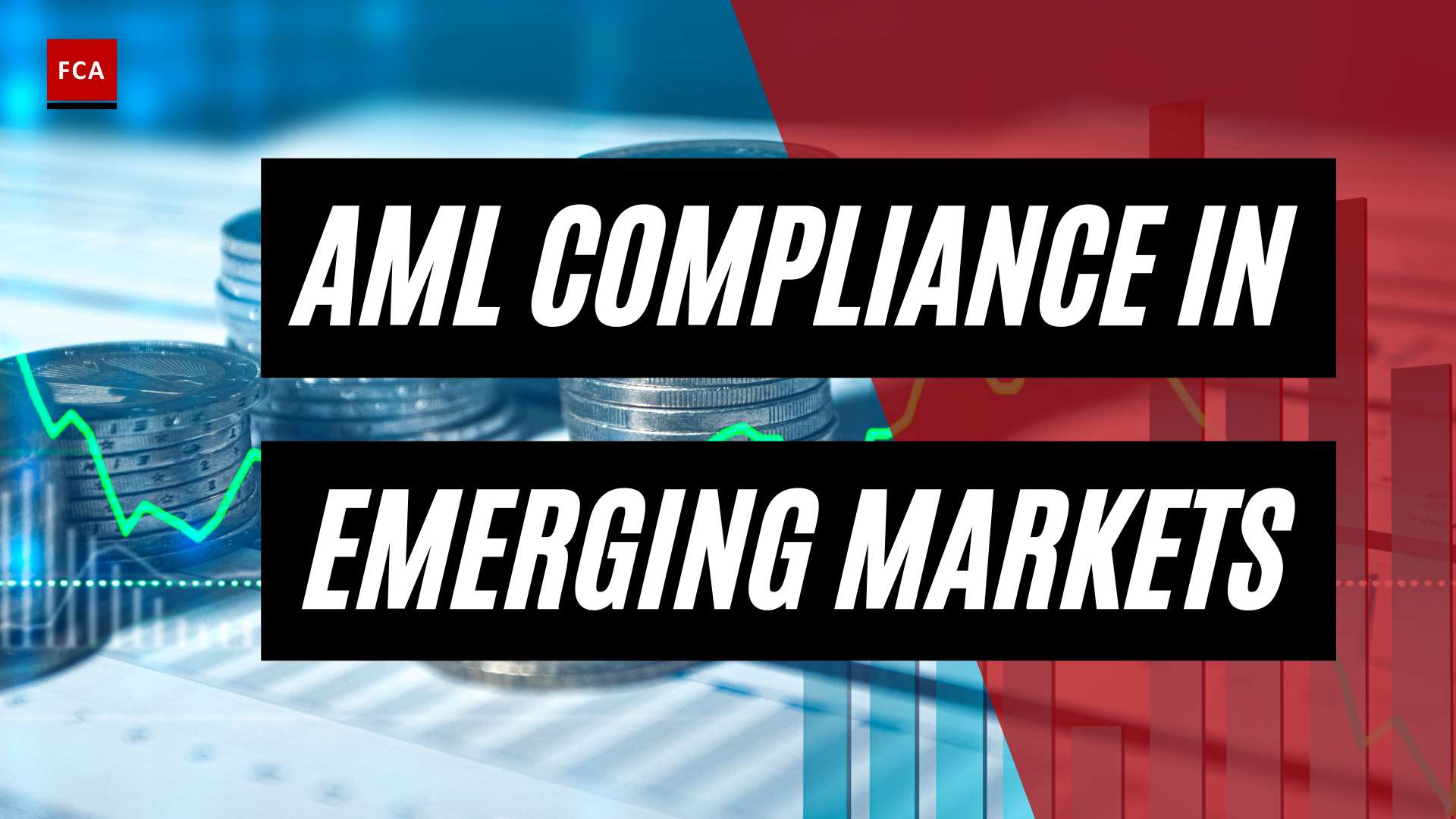Understanding AML Compensation
In the field of Anti-Money Laundering (AML), compensation plays a crucial role in attracting and retaining talented professionals. Understanding the overview of AML careers and the importance of compensation in AML is essential for professionals working in compliance, risk management, anti-money laundering, and anti-financial crime.
Overview of AML Careers
AML careers encompass a wide range of roles focused on preventing and detecting financial crimes, such as money laundering and terrorist financing. These roles include AML analysts, AML specialists, AML managers, and AML directors, among others. Each role contributes to the development and implementation of AML strategies and policies to ensure compliance with regulatory requirements.
The responsibilities of AML professionals may include conducting risk assessments, analyzing financial transactions, investigating suspicious activities, developing and implementing AML programs, and collaborating with internal and external stakeholders to mitigate financial crime risks. A career in AML offers opportunities for growth, challenges, and the ability to make a significant impact in combating financial crimes.
Importance of Compensation in AML
Compensation is a key factor when it comes to attracting and retaining skilled professionals in the AML field. Competitive compensation packages not only reward employees for their expertise and contributions but also serve as a motivating factor to excel in their roles.
In order to attract top talent, organizations need to offer salaries that are commensurate with the skills and experience required in the AML field. According to Payscale, the salary information specifically for the skill of Anti-Money Laundering (AML) indicates a focus on compensation trends in this field. The salary range for AML professionals can vary depending on factors such as job level, experience, location, and industry.
It is worth noting that compensation in the public sector may differ from the private sector. In Canada, for example, compensation for public-sector employees surpasses private-sector levels by 9.24%, with higher wages, benefits, and non-wage job benefits in the public sector compared to the private sector, according to the Fraser Institute. In Quebec, public sector employees receive wages that are 10.9% higher than their private sector counterparts, including salaries, pensions, and job security benefits (Fraser Institute).
In the AML field, compensation packages may include not only base salaries but also additional benefits such as bonuses, healthcare coverage, retirement plans, and professional development opportunities. Employers may also offer performance-based incentives to reward exceptional work and encourage professional growth.
Understanding the compensation landscape in AML is crucial for professionals seeking career progression and for organizations aiming to attract and retain top talent. By staying informed about the latest trends and salary ranges in the AML field, professionals can make informed decisions about their careers, while organizations can develop competitive compensation packages to attract and retain skilled AML professionals.
Next, let’s explore the trends in AML compensation, including the factors affecting AML salaries, salary ranges in the AML field, and different compensation packages and benefits offered to AML professionals.
Trends in AML Compensation
As the field of Anti-Money Laundering (AML) continues to evolve, it’s essential to stay informed about the latest trends in AML compensation. Several factors influence AML salaries, and understanding the salary ranges and compensation packages can help professionals make informed decisions about their careers.
Factors Affecting AML Salaries
Several factors contribute to the determination of AML salaries. These factors include:
- Experience and Expertise: The level of experience and expertise in AML directly impacts salary levels. Professionals with more years of experience and specialized knowledge often command higher salaries. AML Analysts, AML Specialists, AML Managers, and AML Directors may have different salary ranges based on their roles and responsibilities within the organization.
- Education and Certifications: Higher levels of education and relevant certifications can positively influence AML salaries. Advanced degrees and professional certifications demonstrate a commitment to professional development and can lead to higher earning potential.
- Industry and Geographic Location: AML salaries can vary based on the industry in which professionals work and the geographic location of their employment. For example, salaries in the financial services industry may differ from those in the healthcare or gaming industries. Additionally, compensation may vary between regions or countries due to differences in the cost of living and local market conditions.
Salary Ranges in the AML Field
The salary ranges in the AML field can vary depending on various factors, including the professional’s role, experience, and geographic location. Here is an overview of the average salary ranges for different AML positions:
| Position | Salary Range (Annual) |
|---|---|
| AML Analyst | $50,000 – $100,000+ |
| AML Specialist | $60,000 – $120,000+ |
| AML Manager | $80,000 – $150,000+ |
| AML Director | $100,000 – $200,000+ |
Salary ranges are approximate and can vary significantly based on the factors mentioned above. To gain a more accurate understanding of salary ranges for specific job titles and locations, it’s advisable to refer to AML salary surveys and reputable job market research.
Compensation Packages and Benefits
In addition to base salaries, AML professionals may receive compensation packages that include various benefits. These benefits can vary depending on the organization and may include:
- Bonuses: Many organizations offer performance-based bonuses to reward exceptional work and provide additional financial incentives for achieving goals and targets.
- Insurance Coverage: Compensation packages often include medical, dental, and vision insurance to support the overall well-being of employees.
- Paid Time Off: AML professionals are typically entitled to paid vacation days, sick leave, and other forms of paid time off.
- Retirement Plans: Employers may offer retirement plans such as 401(k) or pension schemes to help employees save for their future.
The specific components of compensation packages can vary between organizations. It’s important for professionals to review and understand the full scope of the compensation package offered, including the benefits and perks available to them.
By staying aware of the factors influencing AML salaries, understanding the salary ranges in the industry, and evaluating the compensation packages and benefits, professionals can make informed decisions about their careers. It is also crucial to regularly monitor industry trends and salary benchmarks to ensure competitive compensation and career progression in the dynamic field of AML.
AML Salaries in Specific Regions
The compensation for professionals working in anti-money laundering (AML) roles can vary depending on the region. In this section, we will explore the average salaries and compensation trends in the United States, Canada, and Europe.
AML Compensation in the United States
In the United States, the compensation for AML professionals is influenced by various factors, including experience, level of responsibility, and geographical location. According to a salary survey conducted by Indeed, the average salary for AML Analysts at RBC in Toronto, ON, is $67,318 per year. However, it’s important to note that salaries can vary widely based on different factors.
Here is a glimpse of the salary range reported for AML Analysts at RBC in Toronto, ON:
| Position | Salary Range (per year) |
|---|---|
| Intern | $25,000 |
| Analyst | $50,000 – $90,000 |
| Senior Analyst | $80,000 – $106,000 |
Figures courtesy of Indeed
AML Compensation in Canada
In Canada, the compensation for AML professionals can differ from the private to public sector. According to a study by the Fraser Institute, public-sector employees in Canada receive an average compensation that outstrips private-sector levels by 9.24%. This includes higher wages, benefits, and non-wage job benefits.
In Quebec specifically, public-sector employees receive wages that are 10.9% higher than their private sector counterparts in 2023. This includes salaries, pensions, and job security benefits.
AML Compensation in Europe
AML compensation in Europe can vary significantly based on the country and the organization. It is influenced by factors such as the cost of living, demand for AML professionals, and the level of experience. While specific salary data for AML roles in Europe may not be available, it is important to research and consider the local market conditions and industry standards when assessing compensation in this region.
When considering AML roles in specific regions, it is crucial to remember that compensation can also vary based on the specific position within the AML field. Roles such as AML Analysts, Specialists, Managers, and Directors may have different salary ranges and compensation packages. To gain a more comprehensive understanding of salary trends and job progression in the AML field, it is advisable to consult industry-specific salary guides and conduct thorough research.
Understanding the compensation trends in different regions can help professionals in the AML field make informed decisions about their career paths and negotiate appropriate compensation packages.
Job Satisfaction in AML
Job satisfaction plays a crucial role in the overall well-being and success of professionals working in the Anti-Money Laundering (AML) field. A combination of factors, including work-life balance, organizational culture, and ethical standards, contributes to job satisfaction in AML careers.
Factors Affecting Job Satisfaction
Several factors influence job satisfaction among AML professionals. These factors can vary from individual to individual and may include:
- Career Growth and Development: Opportunities for AML career progression and professional growth contribute to job satisfaction. A clear path for advancement and opportunities to learn and enhance skills provide a sense of fulfillment.
- Recognition and Rewards: Acknowledgment and appreciation for a job well done are vital for job satisfaction. Recognition can come in the form of promotions, bonuses, or other rewards that recognize the efforts and contributions of AML professionals.
- Workload and Stress Management: A manageable workload and effective stress management contribute to job satisfaction. When professionals have a reasonable workload and access to resources to cope with stress, they are more likely to feel satisfied with their work.
Work-Life Balance in AML
Achieving a healthy work-life balance is essential for job satisfaction in the AML field. Striking a balance between work responsibilities and personal life allows professionals to maintain their well-being and avoid burnout. Organizations that prioritize work-life balance by offering flexible working hours, remote work options, and adequate time off contribute to higher job satisfaction among AML professionals.
Organizational Culture and Ethical Standards
The organizational culture and ethical standards of an AML department or firm significantly impact job satisfaction. A supportive and inclusive culture that values integrity, transparency, and ethical practices fosters a positive work environment. A culture that encourages open communication, collaboration, and teamwork also contributes to job satisfaction.
Moreover, ethical standards within an organization play a vital role in the satisfaction of AML professionals. When individuals are confident that their organization is committed to upholding high ethical standards, they are more likely to feel satisfied and proud to be part of the AML field.
Ensuring job satisfaction among AML professionals is crucial for attracting and retaining top talent in the industry. By addressing factors such as career growth, recognition, work-life balance, organizational culture, and ethical standards, organizations can create an environment that promotes job satisfaction and fosters the success of AML professionals.
Evolution of AML Legislation
As the global fight against money laundering intensified, the evolution of Anti-Money Laundering (AML) legislation played a crucial role in shaping the regulatory landscape. This section explores the early AML laws and regulations, recent developments, and the challenges faced in AML regulation.
Early AML Laws and Regulations
One of the earliest major pieces of AML legislation was the 1970 US Bank Secrecy Act (BSA) which required US financial institutions to report daily transfers of more than $10,000, a rule that still applies today. This act marked a significant milestone in combating money laundering by imposing reporting obligations on financial institutions and establishing a higher standard of due diligence. It aimed to detect and prevent financial activity associated with tax evasion, fraud, and money laundering (A Data Pro).
In 1986, the Money Laundering Control Act was enacted, which clarified penalties associated with money laundering and made it a federal crime. Additionally, the Anti-Drug Abuse Act of 1988 expanded the definition of a “financial institution” to include businesses selling large assets, making it more difficult for criminals to launder money through various industries (A Data Pro).
The Money Laundering Suppression Act of 1994 in the United States further strengthened AML regulations. It mandated banks to adopt new review methods and enhance examination procedures to prevent suspicious transfers. It also made it mandatory for every Money Services Business to register, while making unregistered operations illegal (A Data Pro).
Recent AML Regulations
In more recent years, new AML regulations have been introduced worldwide to address the evolving nature of financial crime. In 2020/2021, significant developments took place, including the introduction of the 6th AML directive in the European Union, the Money Laundering and Terrorist Financing (Amendment) Regulations in the United Kingdom, and the implementation of the Anti-Money Laundering Act (AMLA) in the United States.
These regulations build upon existing laws, focusing on addressing risks associated with the digital age, international transfers, shell companies, and cryptocurrencies. The aim is to enhance transparency, improve due diligence measures, and strengthen the ability to detect and prevent money laundering activities (A Data Pro).
Challenges in AML Regulation
Despite the continuous efforts of global lawmakers, money laundering remains a persistent challenge. Regulators face new obstacles due to the anonymity and prevalence of cryptocurrencies, which can be used to send large sums of money without requiring personal information from the sender or recipient. This poses a significant challenge in tracking and identifying suspicious transactions.
Furthermore, the ever-evolving techniques employed by money launderers demand constant adaptation from regulatory bodies. Staying ahead of emerging trends and technologies, such as digital payment systems and online platforms, is crucial for effective AML regulation.
As AML legislation continues to evolve, it is essential for regulators, financial institutions, and AML professionals to remain vigilant, proactive, and adaptive in their approach to combating money laundering and mitigating associated risks. A robust and dynamic regulatory framework will be essential to effectively deter money laundering and maintain the integrity of the global financial system.
Future Outlook for AML Careers
As the world continues to grapple with the challenges of money laundering and financial crimes, the demand for skilled professionals in anti-money laundering (AML) is expected to increase. In this section, we will explore the future outlook for AML careers, including the increasing demand for AML professionals, the impact of technology on AML compensation, and the need to adapt to the changing AML landscape.
Increasing Demand for AML Professionals
The fight against money laundering and financial crimes remains a top priority for governments, regulators, and financial institutions worldwide. As a result, there is a growing demand for AML professionals who possess the knowledge and skills to detect, prevent, and mitigate the risks associated with illicit financial activities.
The implementation of stricter AML regulations, such as the 6th AML directive in the European Union, the Money Laundering and Terrorist Financing (Amendment) Regulations in the United Kingdom, and the Anti-Money Laundering Act (AMLA) in the United States, reflects the commitment to address emerging risks (A Data Pro). These regulations focus on areas like international transfers, shell companies, and cryptocurrencies, adapting to the evolving methods used by money launderers.
As the landscape of financial crimes evolves, the need for AML professionals with specialized knowledge in areas such as cybersecurity, digital currencies, and emerging technologies will continue to grow. A career in AML offers promising opportunities for those seeking to make a difference in combating financial crimes.
Impact of Technology on AML Compensation
Technology plays a vital role in the fight against money laundering, and its impact on AML compensation is significant. The increased adoption of advanced technologies, such as artificial intelligence (AI), machine learning, and data analytics, has transformed the way AML professionals work.
These technologies enable more efficient and effective identification of suspicious transactions and patterns, reducing the manual effort required for AML investigations. As a result, AML professionals with expertise in leveraging technology to enhance AML processes and workflows are highly sought after.
The integration of technology into AML practices has the potential to streamline operations, increase productivity, and improve the overall effectiveness of AML programs. AML professionals who can adapt to and leverage these technological advancements are likely to be rewarded with competitive compensation.
Adapting to Changing AML Landscape
The AML landscape is constantly evolving, driven by changing regulations, emerging risks, and advancements in technology. A successful AML career requires professionals to stay ahead of these changes and adapt their skills and knowledge accordingly.
As new AML regulations are introduced and existing laws are updated, AML professionals must remain up to date with the latest compliance requirements and best practices. Continuous learning and professional development are crucial for staying ahead in the field of AML.
Furthermore, AML professionals need to develop a deep understanding of emerging risks, such as the use of cryptocurrencies and evolving money laundering techniques. By staying informed about emerging trends and technologies, AML professionals can proactively address these challenges and contribute to the effectiveness of AML programs.
In conclusion, the future outlook for AML careers is promising. The increasing demand for AML professionals, the impact of technology on AML compensation, and the need to adapt to the changing AML landscape present opportunities for individuals looking to build a successful career in AML. By staying updated with the latest trends and continuously developing their skills, AML professionals can contribute to the fight against money laundering and financial crimes while enjoying a rewarding and fulfilling career.








